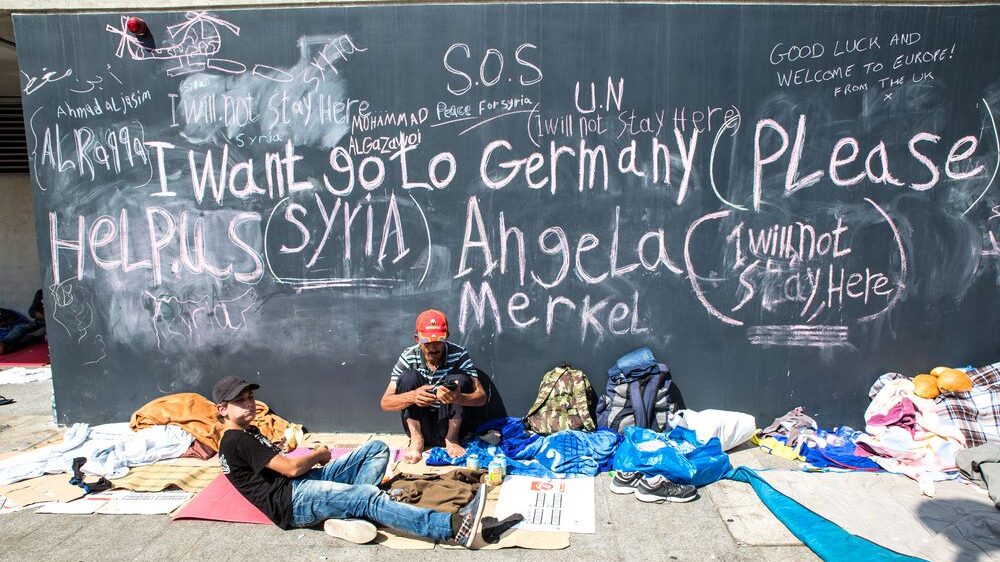
Syrian refugees demand help from Germany at train station Keleti Palyudvar, Hungary, during migration crisis of 2015.
Photo: Spectral-Design / Shutterstock.com
German populists sounded the alarm over the weekend after the Bundestag voted 388 to 234 on Friday, June 23rd, in favour of plans to radically reduce the entrance criteria for new migrants in the hope of solving the country’s alleged labour shortages.
The most worrying of the reforms liberalises the process of family reunification which is often noted for ballooning migrant numbers from the third world.
This new system, modelled on the Canadian migration model, will create a grading system based on skills and ability to speak German that enables migrants to work in Germany for an initial period of twelve months.
The new law fulfils a campaign promise by the ruling traffic-light coalition of Green, Liberal, and Social Democratic parties in Berlin to relax migration restrictions and passed despite pressure from CDU and AfD representatives.
The law makes it easier for the extended family of a migrant worker to come live in Germany and extends to non-blood relatives. After passing the Bundestag, the new migration law will be debated and voted on in the Bundesrat, the federal legislative body for the 16 German states.
Germany is already witnessing a surge in migration figures driven by the war in Ukraine and non-EU asylum seekers. Official figures show 180,000 foreigners claimed family reunification last year alone.
The German government has so far bucked European trends towards more restrictive immigration policies, at least rhetorically, as it lobbied for additional migration from Africa earlier this year.
The reforms passed on Friday are ostensibly aimed at attracting new workers from Western Balkan nations such as Albania and Montenegro which are both set to be integrated into the EU over the next few years.
Despite this, opposition MPs from the centre-right CDU voiced their concern that there is some uncertainty about where the new migrants will come from during last week’s parliamentary debate around the law as the AfD trashed the law as a way to transform Germany into a “junk country.”
The reforms come despite a rise in support for the right-wing populist AfD which won its first district election in Sonneberg over the weekend in what pundits are deeming a significant landmark for the party.
The decision to open the door further on migration into Germany was slammed by AfD MEP Markus Buchheit in a statement to The European Conservative, saying that migration patterns not only had to be stopped but reversed to protect national cohesion. “’Irish playwright Samuel Beckett once quipped to an actor that he ‘Try again. Fail again, Fail bigger, Fail better’. That’s clearly what the German government is doing,” Buchheit remarked, referring to cycles of welfare dependence that migration is causing.
During recent EU debates on migration and the prospect of EU-wide quotas on refugees for member states, many noticed that the German government has the most ardent open-border policies despite the rise of populism at home and abroad.
On July 28th, The European Conservative will host MEP Charlie Weimers, Ben Habib from Reform UK, and Pierre-Marie Sève, Director of Institut pour la Justice, to discuss migration policies and offer constructive alternatives to the EU’s ‘solutions.’ The event, Migration: Across Ideological Borders, will take place at the Silversquare working space, from 12:00-14:30. It is open to the public but registration is required.
